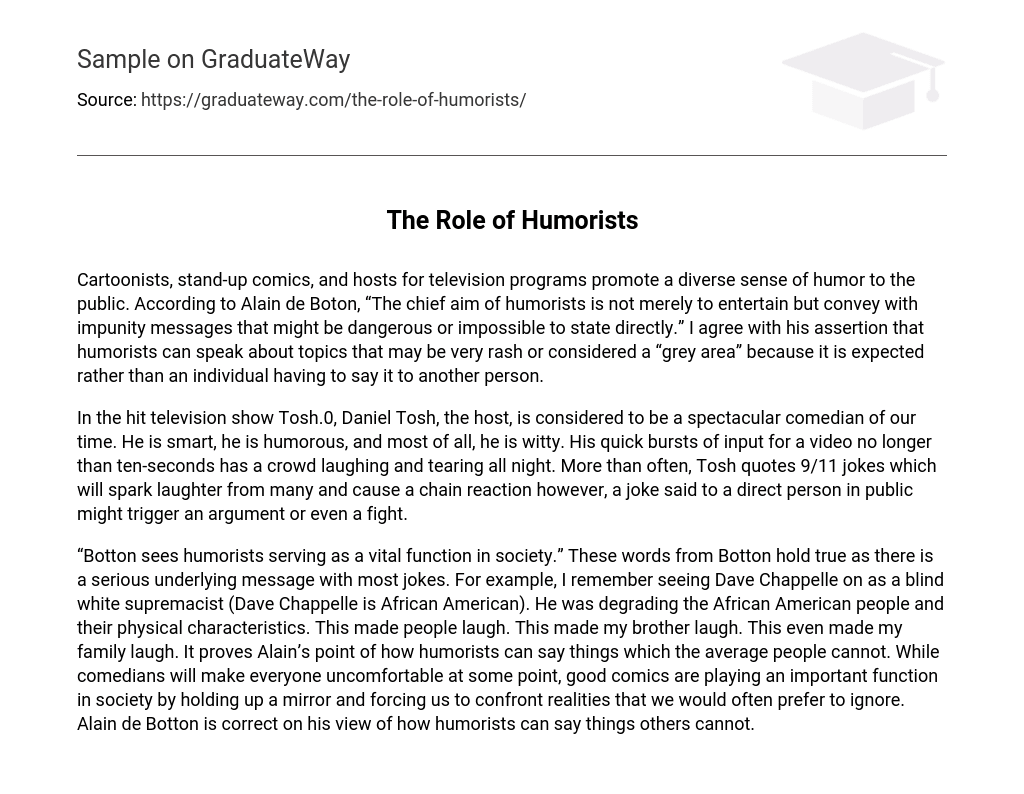Cartoonists, stand-up comics, and hosts for television programs promote a diverse sense of humor to the public. According to Alain de Boton, “The chief aim of humorists is not merely to entertain but convey with impunity messages that might be dangerous or impossible to state directly.” I agree with his assertion that humorists can speak about topics that may be very rash or considered a “grey area” because it is expected rather than an individual having to say it to another person.
In the hit television show Tosh.0, Daniel Tosh, the host, is considered to be a spectacular comedian of our time. He is smart, he is humorous, and most of all, he is witty. His quick bursts of input for a video no longer than ten-seconds has a crowd laughing and tearing all night. More than often, Tosh quotes 9/11 jokes which will spark laughter from many and cause a chain reaction however, a joke said to a direct person in public might trigger an argument or even a fight.
“Botton sees humorists serving as a vital function in society.” These words from Botton hold true as there is a serious underlying message with most jokes. For example, I remember seeing Dave Chappelle on as a blind white supremacist (Dave Chappelle is African American). He was degrading the African American people and their physical characteristics. This made people laugh. This made my brother laugh. This even made my family laugh. It proves Alain’s point of how humorists can say things which the average people cannot. While comedians will make everyone uncomfortable at some point, good comics are playing an important function in society by holding up a mirror and forcing us to confront realities that we would often prefer to ignore. Alain de Botton is correct on his view of how humorists can say things others cannot.





